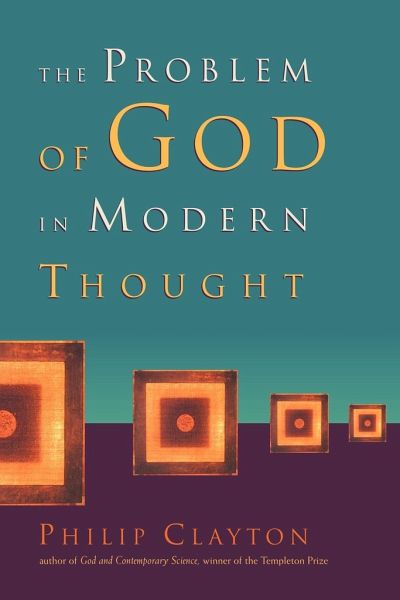
The Problem of God in Modern Thought
Versandkostenfrei!
Versandfertig in 1-2 Wochen
45,99 €
inkl. MwSt.

PAYBACK Punkte
23 °P sammeln!
This is a print on demand book and is therefore non- returnable.


Rechnungen
Bestellstatus
Retourenschein
Storno